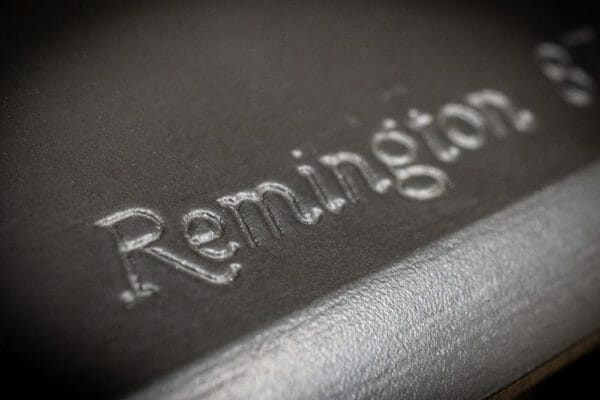
U.S.A. –-(AmmoLand.com)-– Much of old Media are parroting headlines similar to these examples:
- Sandy Hook Families Settle With Gunmaker for $73 Million Over Massacre (New York Times)
- Families of Sandy Hook victims reach $73 million settlement with Remington (NPR)
- Sandy Hook families reach $73 million settlement with gun manufacturer Remington (CNN)
- Families of Sandy Hook victims settle with Remington (BBC)
- Sandy Hook families settle for $73M with gun maker Remington (AP)
The problem with these headlines, as with much of the reporting on the old, dominant media, is they are all false.
Remington, the gunmaker, did not settle with anyone. Remington the gunmaker no longer exists. The people who settled with the families are not gunmakers. They are insurance companies. Remington had no say in the matter. If the case had gone to trial, Remington very likely would have prevailed. The lawsuit was always highly problematic.
From the National Shooting Sports Foundation:
Insurers for the defunct Remington Outdoor Company (ROC) reached a settlement for $73 million with families suing the gun manufacturer under Connecticut’s Unfair Trade Practices Act (CUPTA). The insurers reached the settlement since the company no longer exists after falling into bankruptcy. NSSF noted that no manufacturer admitted liability and the plaintiffs never produced evidence that advertising ever influenced Nancy Lanza, who legally purchased the rifle, nor her son who murdered her and committed the heinous crimes. The Connecticut Supreme Court wrote in its Soto v. Bushmaster (4-3) opinion, “[T]he plaintiffs allege that the defendants’ wrongful advertising magnified the lethality of the Sandy Hook massacre by inspiring Lanza or causing him to select a more efficiently deadly weapon for his attack. Proving such a causal link at trial may prove to be a Herculean task.” NSSF believes the Court incorrectly allowed this one claim to go forward to discovery and is confident ROC would have prevailed if this case proceeded to trial.
Remington, when it existed, was protected by the Protection of Lawful Commerce in Arms Act (PLCAA). The act protects arms manufacturers, wholesalers, and retailers from lawsuits. If they follow the law in the manufacturing and sales process. they cannot be sued for criminal actions committed with their legally sold products.
The Act should have been the PLCA (Protection of Lawful Commerce Act.) It should have covered all manufacturers, wholesalers, and retailers. A free society cannot function if people who have no control over the actions of criminals are held responsible for the actions of criminals. No food producer, alcohol producer, automobile producer, or clothing producer can survive under such liability.
Will the next lawsuit be against Nike for the shoes worn by a mugger? Against Ford for the truck used by a drive-by shooter? Against Trek for the bicycle used by a bank robber?
All of those are just as valid as lawsuits against a gun manufacturer, after a gun, they manufactured and legally sold was stolen after the legal owner was murdered, and then used in mass murder.
Everyone should note this was not damages awarded by a court, even if Giffords Law Center to Prevent Gun Violence labels it as such. From NPR.org:
This case is thought to be the first damages award of this magnitude against a U.S. gun manufacturer based on a mass shooting, according to Adam Skaggs, chief counsel and policy director at Giffords Law Center to Prevent Gun Violence.
This was a settlement between the parties of the lawsuit, not court awarded damages. The court awarded damages can be appealed. A settlement cannot.
The insurance companies are listed in this article at insurance.com:
At the time of the shooting, four insurers had a total of five policies in effect on Remington Arms and its companies. The four insurers sharing in the settlement payout to the families of the shooting’s victims are Ironshore (a Liberty Mutual subsidiary), James River Insurance Co., ACE (now Chubb), and North American Capacity Insurance Co. (Swiss Re Corporate Solutions America Insurance Corp.).
Why would insurance companies agree to a settlement for the maximum amount they insured Remington for? It does not appear they gain much if anything.
Glenn Beck believes the insurance companies are being pressured by the government to do so. He thinks the whole point is to make gun manufacturers uninsurable. He may be correct. This settlement did not happen until after President Biden was elected.
About Dean Weingarten:
Dean Weingarten has been a peace officer, a military officer, was on the University of Wisconsin Pistol Team for four years, and was first certified to teach firearms safety in 1973. He taught the Arizona concealed carry course for fifteen years until the goal of Constitutional Carry was attained. He has degrees in meteorology and mining engineering, and retired from the Department of Defense after a 30 year career in Army Research, Development, Testing, and Evaluation.

